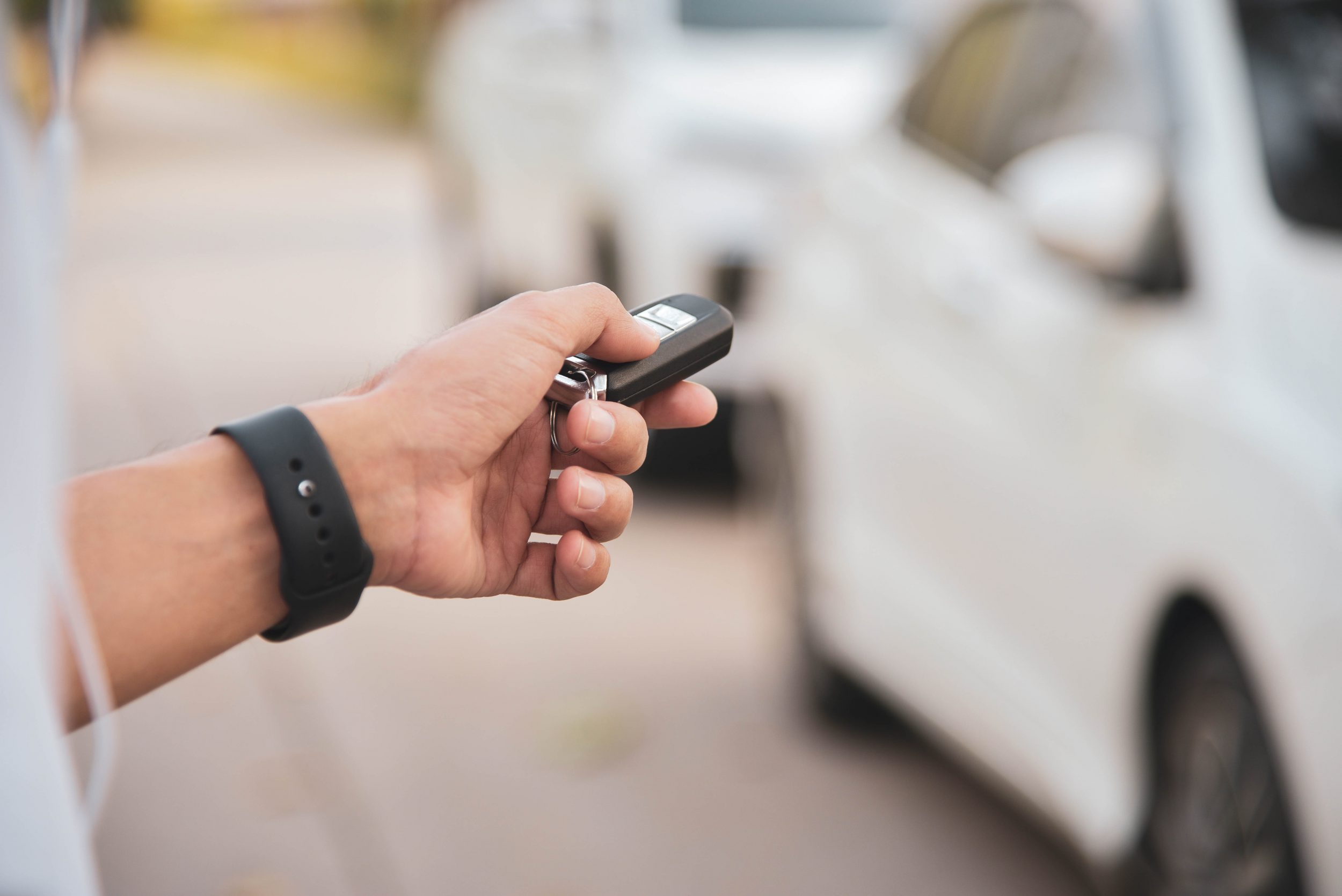Buying a car is a major decision that requires thoughtful consideration and research. Whether you’re buying your very first car or upgrading your current vehicle, searching for the right car for you can be a minefield.
Making the right choice depends on several factors, including your budget, lifestyle needs, and future plans. This guide will walk you through the essential steps of buying a car, helping you weigh up your options and make an educated decision.
What to consider when choosing a car
When choosing a car, it’s crucial to evaluate a range of factors that go beyond just the price tag. Before you begin your search, you should decide on these important factors.
Budget
This will probably be one of the biggest factors that determines the type, make and model of car you will buy. You should be realistic about your financial situation and what you can afford to spend on monthly payments if you’re considering a finance package or loan.
While the initial cost of a car can be significant, you’ll also need to account for future costs such as insurance, taxes, maintenance and fuel.
Key costs include:
- Initial purchase price: new cars are generally more expensive upfront compared to used ones.
- Insurance: premiums vary depending on the model, year and engine size.
- Tax: vehicle tax bands are based either on engine size, or fuel type and CO2 emissions, depending on when the vehicle was first registered. You should also consider Vehicle Excise Duty (VED) or other local taxes based on the car’s emissions.
- Maintenance: regular service and potential repairs can add up over time and should be considered.
How to buy a car on finance
Buying a car on finance allows you to spread the cost over a set period, but it’s important to understand how different options work:
- Hire Purchase (HP): with HP, you pay a deposit followed by monthly payments. The car is owned by the finance company until your final payment when you will eventually gain ownership. The finance company is the legal owner of the car throughout the agreement, but you are recorded as the registered keeper.
- Personal Contract Purchase (PCP): PCP is an agreement that typically involves paying a deposit followed by monthly instalments over a fixed period. These payment amounts will vary based on the mileage limit you agree on. At the end of a PCP, you have the choice to either return the vehicle or purchase it outright by paying a lump sum, or refinance the car on a new PCP agreement.
- Loans: you can take out a personal loan to purchase the car outright, giving you full ownership and the ability to pay off your loan when you like according to your loan agreement.
Used or new
Deciding between a used or new car comes down to your priorities and budget. There are pros and cons to each so it’s worth weighing these up before you start looking for a car.
- New cars: these are generally more expensive than used cars but will come with the latest technology, warranties, and safety features. If you want a new model of car, often this is your only option as there won’t be many used cars of a new model. Choosing a new vehicle also means you’re the first owner and you don’t need to worry about its previous history or about having an MOT for the first three years. However, the value of new cars depreciates quickly, and starts to as soon as you drive them out of the dealership.
- Used cars: these are generally more affordable and depreciate slower; however, they may lack warranties and will have more wear and tear than a new car. You should always consider a used car’s history and check its mileage, services and research and potential repair costs.
Your specific needs
You should consider how you will use your new car, whether it’s for commuting, school runs, or road trips for example. It’s also important to consider how you’ll need your car to function in the future. Cars are long-term investments and will need to serve you not just now, but years down the line as well.
When considering the future, think of things like whether you are planning to start a family soon, whether you might need to drive longer distances in the future, whether this car may serve as a business vehicle and more. You might not know the answers to all of these questions right now, but you can begin to think how functional a vehicle may be for you.
Manual or automatic
The choice between a manual or an automatic transmission depends largely on personal preference and driving habits.
- Manual: often preferred by drivers who enjoy a more engaging driving experience and are looking to save on fuel.
- Automatic: easier to drive, particularly helpful in heavy traffic, though they may consume more fuel in some cases.
Electric, diesel or petrol
The amount of fuel or energy your car uses is another major consideration.
- Electric: environmentally friendly and cheaper to run, but higher upfront costs and charging infrastructure availability might be concerns.
- Diesel: offers better fuel economy for long-distance driving, but higher emissions and taxes in some regions may offset savings.
- Petrol: typically cheaper to buy, with better performance in city driving, though it can be less fuel-efficient than diesel.
As well as taking into account fuel prices and efficiency, you should consider that from 2035, the government will impose a ban on the sale of all new diesel and petrol cars. While this won’t necessarily affect the purchase of a vehicle within the next few years, it could have implications if you want to sell your car in the future.
Features
When buying a car, it’s important to consider what features matter most to you. Common considerations include:
- Safety: airbags, anti-lock brakes, driver-assistance systems like lane-assist or cruise control.
- Comfort: heated seats, climate control, adjustable seating.
- Technology: Apple Car Play or other smartphone integrations, navigation systems, infotainment systems
Reviews
Before finalising your decision, it’s a good idea to read reviews and testimonials from current owners and experts. Trusted websites such as AutoTrader, WhatCar? and other customer review sites will help you to assess reliability, performance, and any common issues with specific models.
How long does it take to buy a car?
The process of buying a car can vary depending on whether you’re purchasing a new or used vehicle.
Buying a new car
Buying a new car can often take several weeks if you’re ordering from a dealership, especially if the car you want is a bespoke order or isn’t immediately available. Ordering factory-fitted extras or customisations can often extend the timeline. However, you can often cut a deal with a dealership to buy an ex-showroom car that can cut down your timeline significantly.
Buying a used car
When buying a used car, the process can often be quicker than buying a used car. After selecting the car, performing inspections and completing paperwork, you can often drive the car home within a day or two. Check out our comprehensive guide on our top tips for buying a used car.
Where should I buy a car from?
You can choose between buying from a dealership or a private seller. Both options have their own pros and cons and should be carefully considered.
Dealership vs private seller
A dealership sells new and used cars, typically from a single manufacturer. The reliability of dealership is what makes them a popular choice for so many. They provide warranties, financing options, and certified vehicles. However, this often means that cars from dealerships are more expensive than those sold privately.
Private sellers can often be more affordable and can sometimes provide you with the opportunity to bargain down the price of a car; however, they do carry more risk. There is typically no warranty from private sellers, so any issues discovered after the purchase will be entirely your responsibility.
In both cases, it’s essential to test-drive the car before committing to a purchase. A test drive helps you assess the comfort, handling, and performance of the vehicle.
What do I need to do after buying a car?
Once you’ve bought your car, there are a few key steps to complete before you can drive it legally.
Register the vehicle
Ensure the vehicle is correctly registered in your name by obtaining the V5C logbook. You’ll need this document for tax and insurance purposes.
Tax and insure the car
Before driving your new car, make sure it’s taxed and insured. You can easily tax your car online via the GOV.UK website. For insurance, you can update your annual insurance to cover your new car or purchase temporary insurance so you have time to research the best insurance options, allowing you to drive you car away in minutes.
Familiarise yourself with your new car
It’s essential to get comfortable with your new car before hitting the road. Here are a few of our top tips:
Make adjustments
Your comfort plays an important role in good driving, which makes finding the right body position the best way to get ready to drive a new car. Adjust the wheel, seat and headrest until you find the position that’s right for you. The wheel should be around 12 inches from your chest and you should have enough space to press down on the pedals with a slight bend in your knee.
You should also adjust the mirror so that you are able to spot hazards around your car. The rear-view mirror should give you a clear view of the back window and road behind without needing to move your head, and each side mirror should show around 10% of the car’s side.
Locate the controls
Differences in where essential controls are located is one of the biggest challenges of driving a new car. You should familiarise yourself with key controls so that you can use them safely whilst driving, including:
- Hazard, fog and headlights
- Windscreen wipers
- Screen wash
- Demister
- Horn
- Indicators
Sync the entertainment system
Most cars come with built-in technology like sat-navs and entertainment systems. You should spend some time setting this up before you set off in your new car. If you need to pair the entertainment system with your phone, you should do this whilst stationary so it’s ready to use when you start driving.
Practice manoeuvres
People find manoeuvres challenging at the best of times, never mind in a new car. It’s a good idea to find a quiet area to practice driving manoeuvres in your new vehicle until you feel comfortable enough to do them in a busy environment.
Hit the road
When you feel ready, you could plan your first drive around a quieter time or area to get used to your new car in a low-pressure setting. Start driving on local roads, away from rush-hour traffic. You could consider bringing someone with you as a passenger for some extra support.
Drive away with temporary car insurance from Dayinsure
As you prepare to take your new car on its first journey, the last thing you want is the worry of not being properly covered. Our flexible insurance options are perfect for driving your new car home, as well as test driving a car to make sure it’s right for you.
With insurance available from 1 hour to 30 days, find out more about our temporary car insurance and get a quote today



